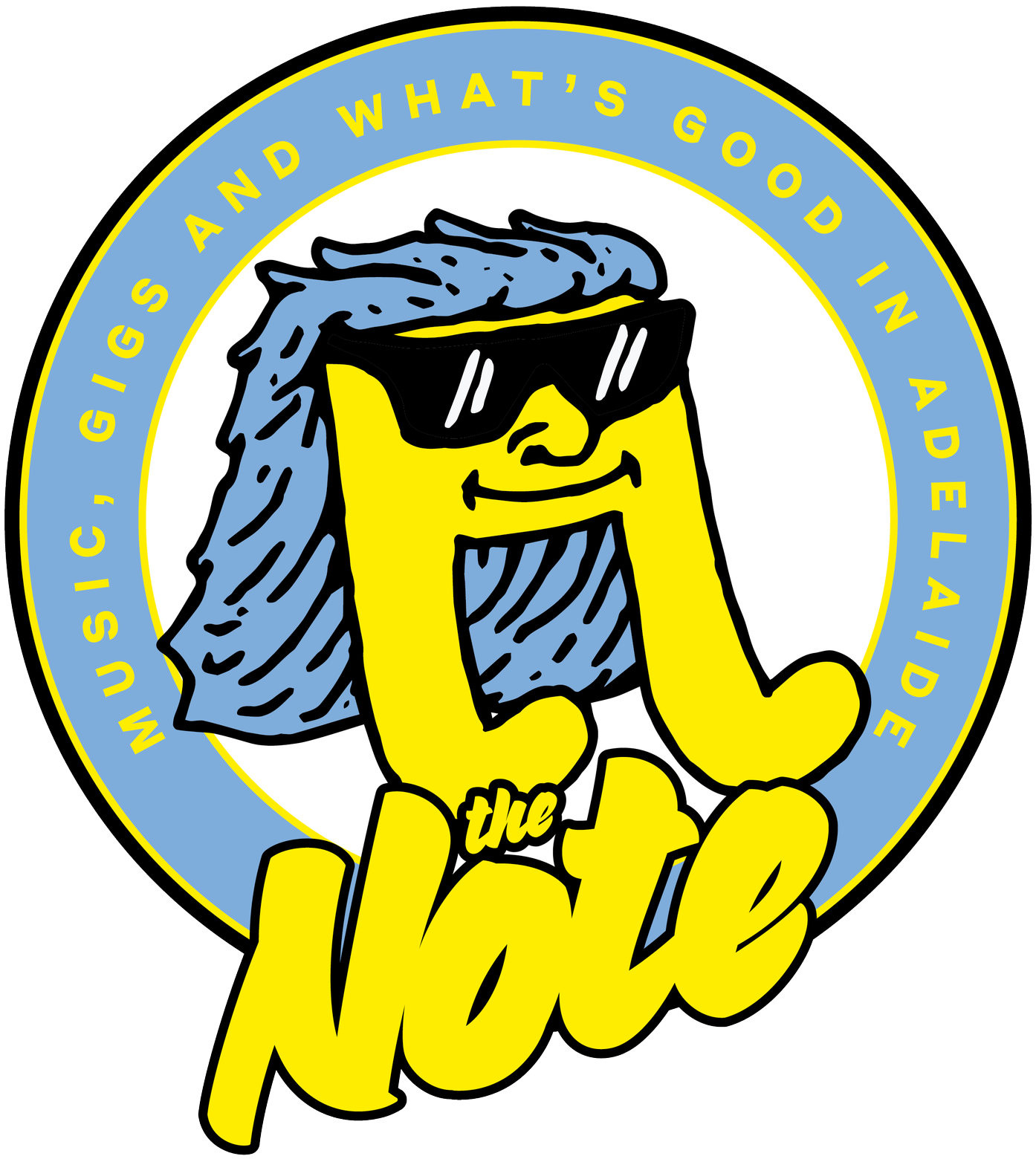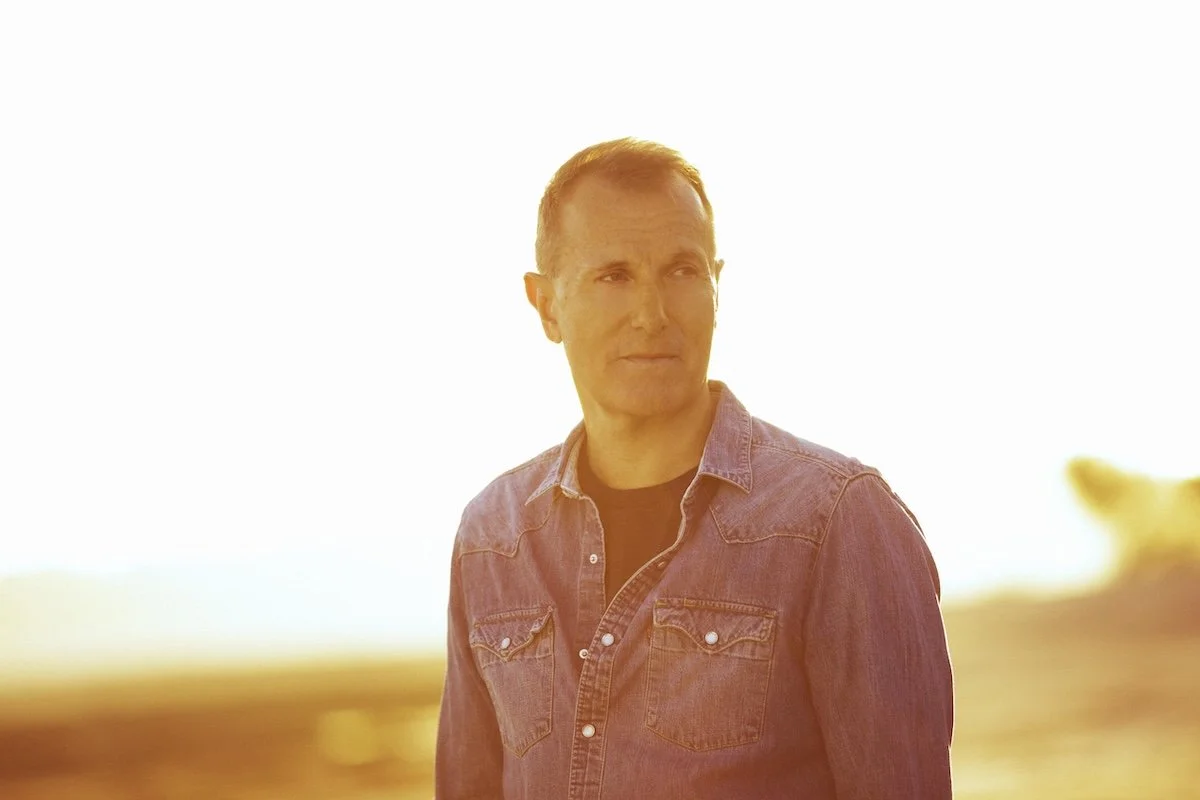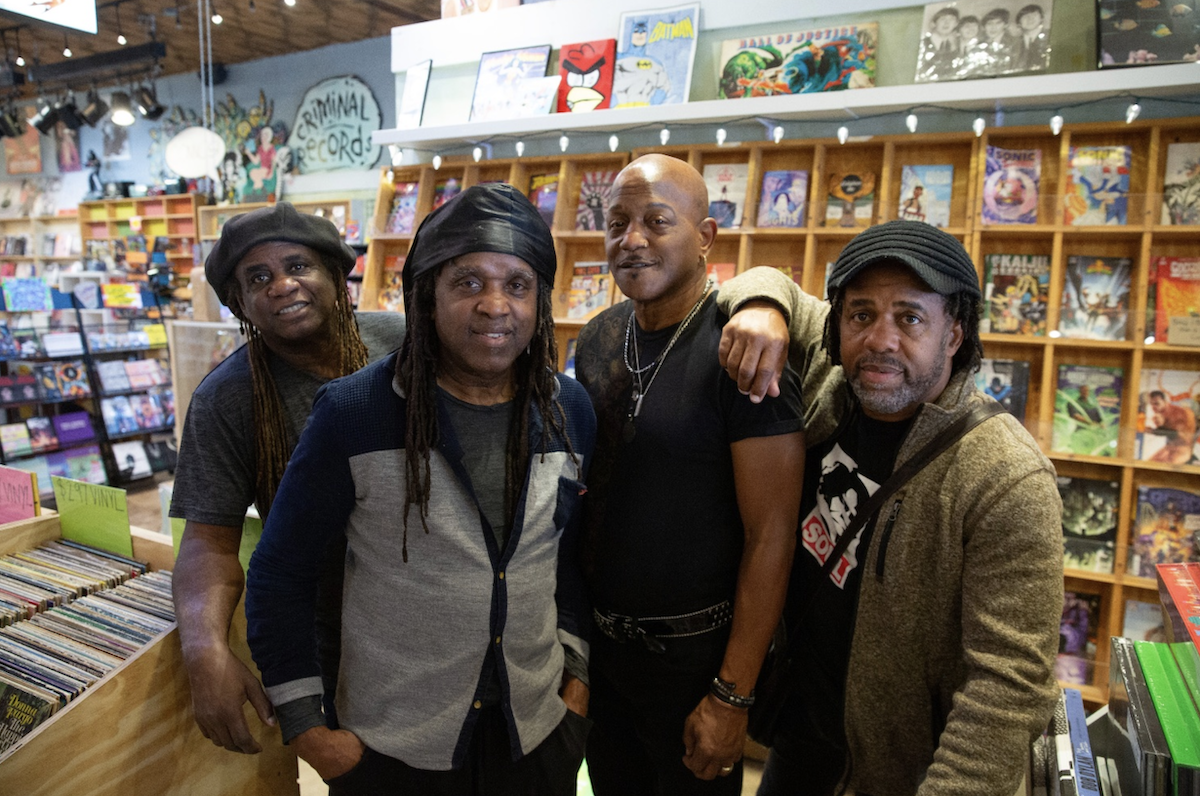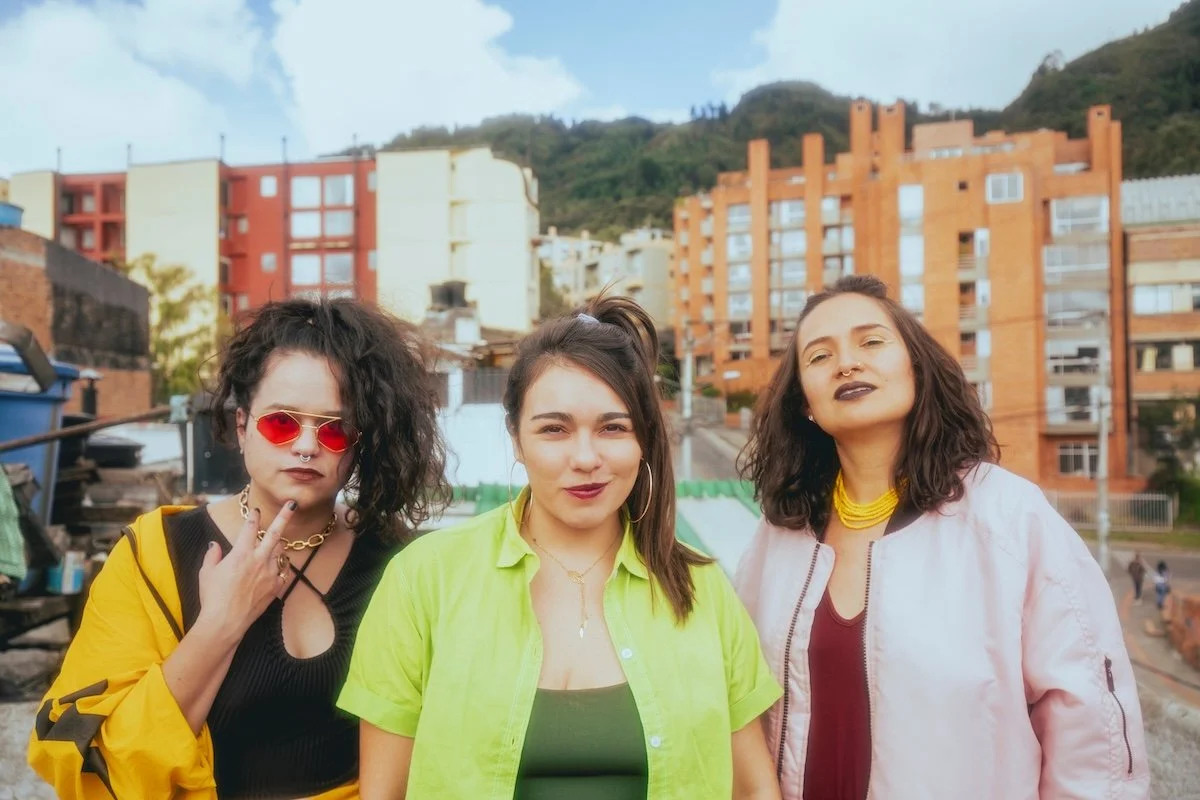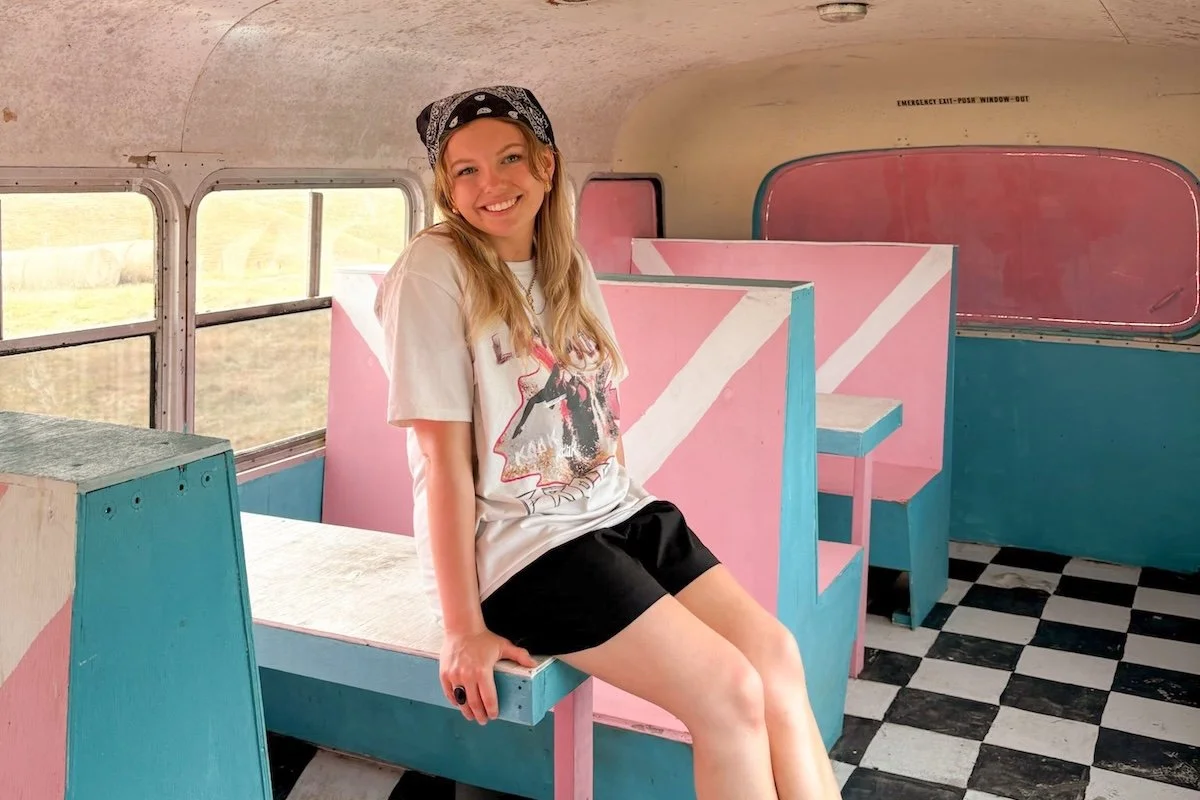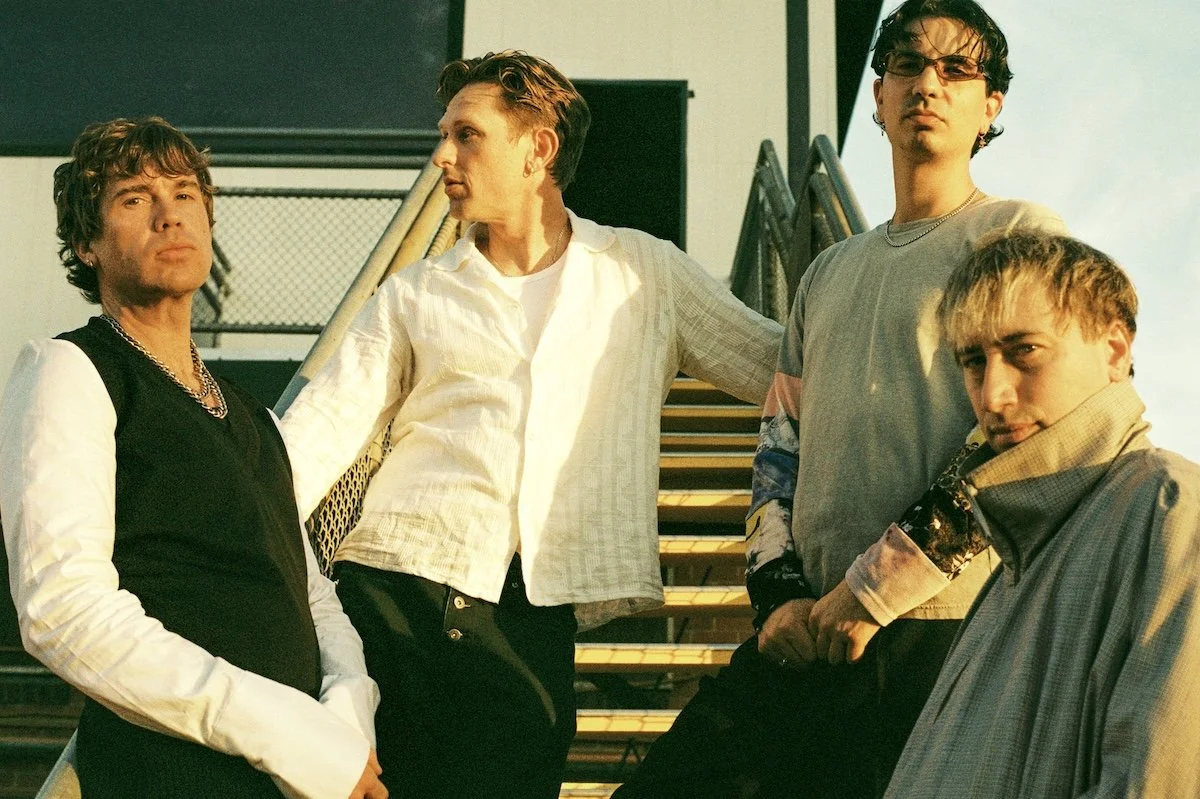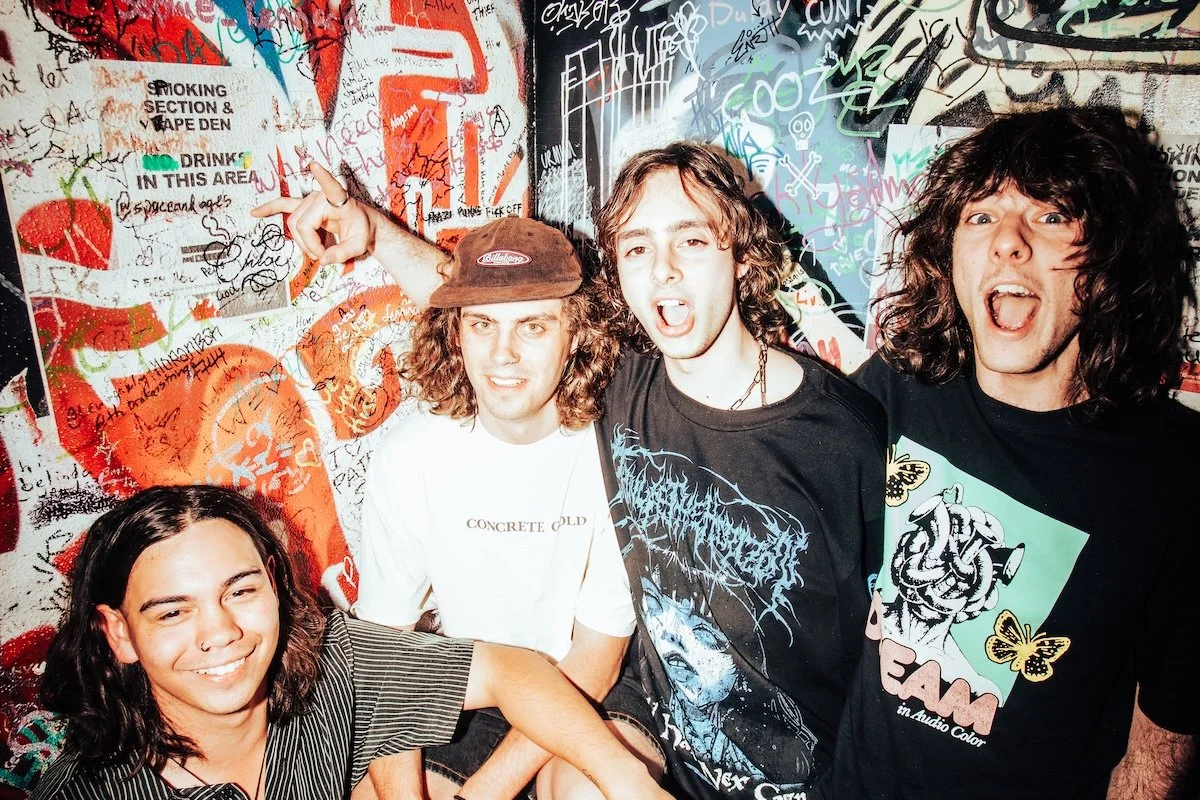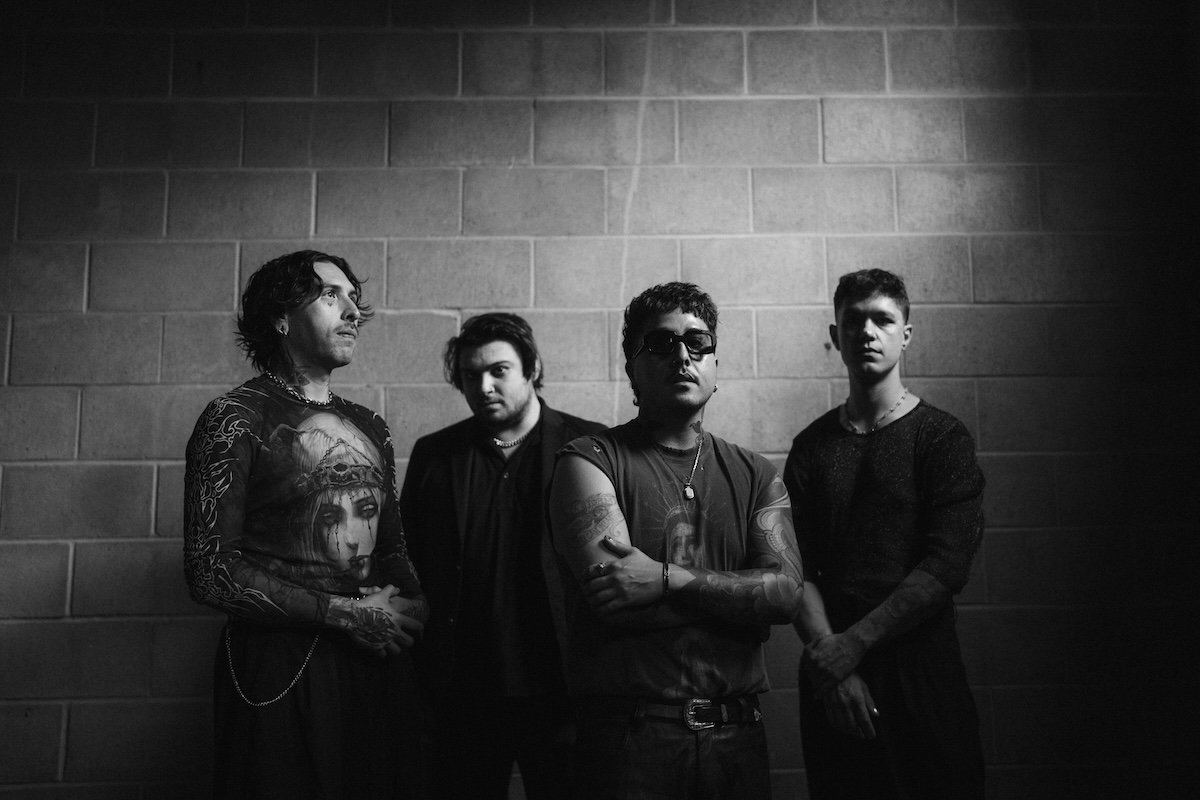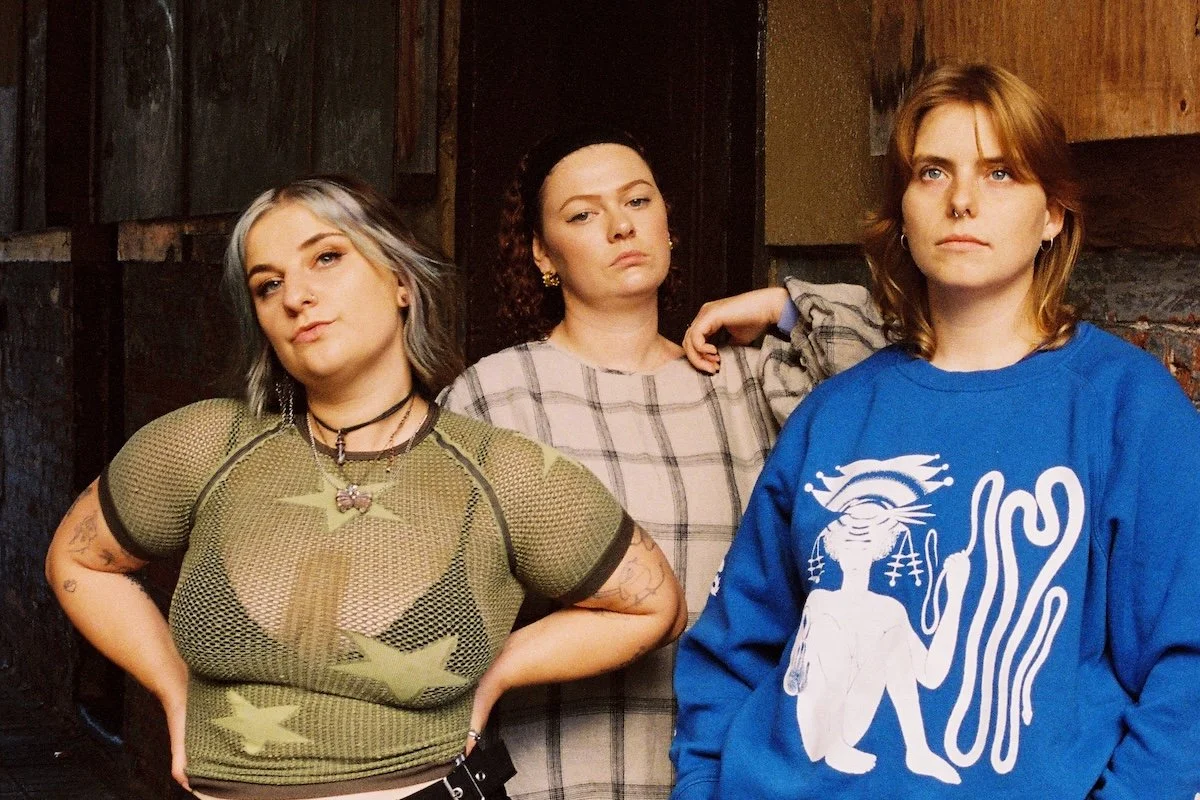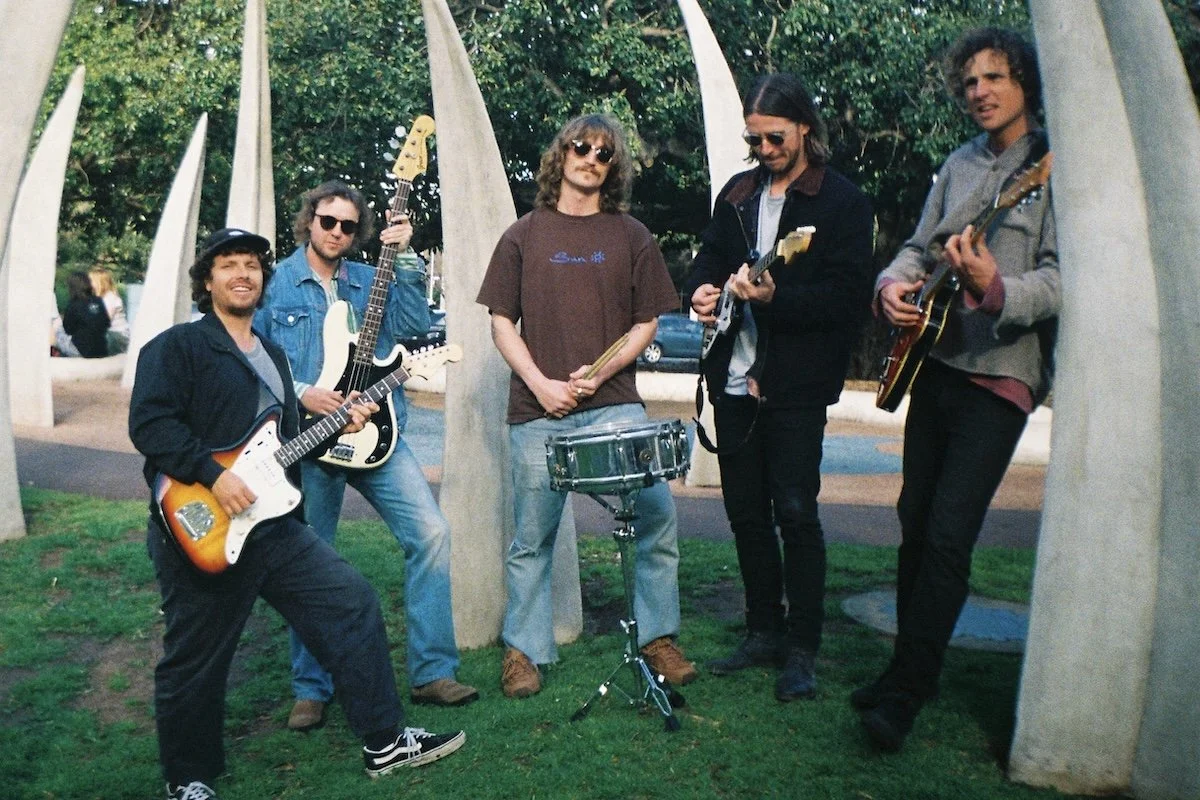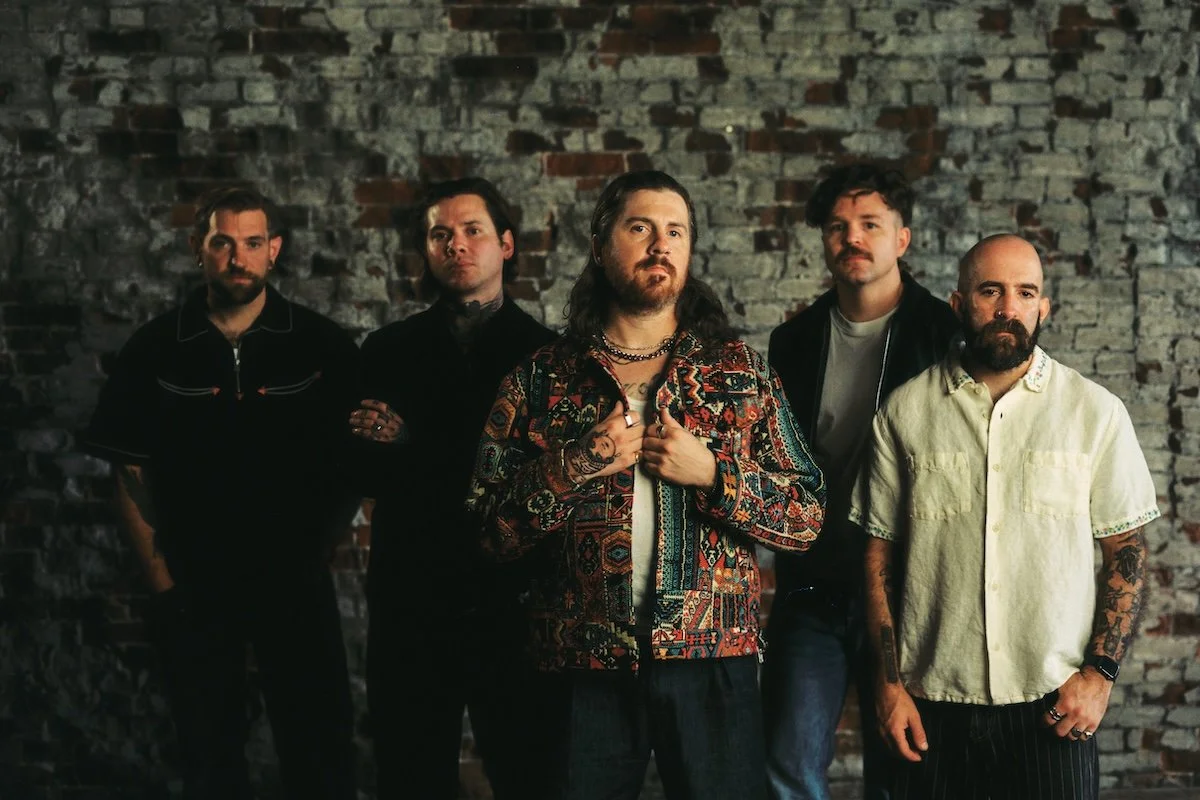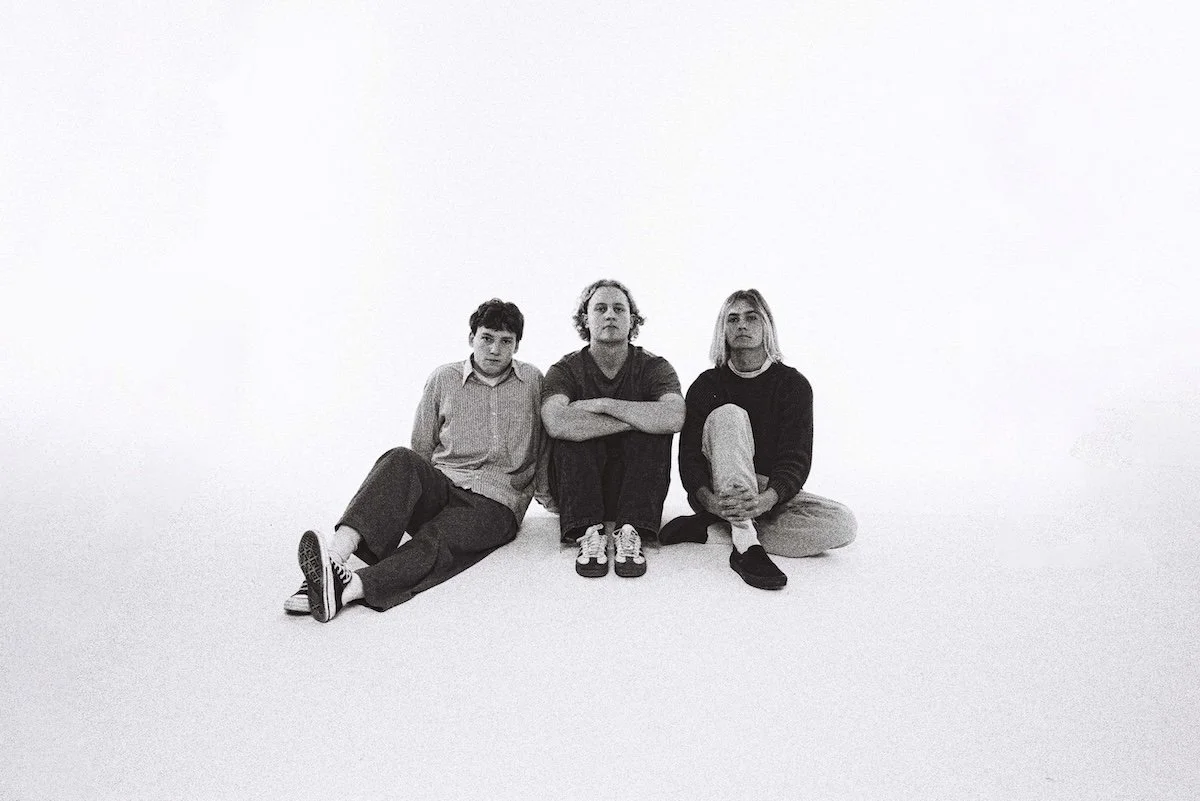Gang of Youths: Youths and Angels
Gang of Youths have a talent for turning human emotions into life-affirming anthems that Australians (and the world) have loved for the better part of a decade. The band’s bassist Max Dunn walks The Note through the complexities of their latest album and talks about why the five-piece will always make time for Adelaide.
Image by Ed Cooke
According to Gang of Youths bassist Max Dunn, the band have one goal when making music: achieving beauty.
Beauty in the way the music sounds, how it feels, and what it means to the Sydney-made, London-based five-piece and their listeners. Beauty in their soulful, soaring, chest-pounding anthems that colour different moments in our lives. Beauty in all the love, grief, and resilience.
“As a collective, everything is an opportunity to find a deeper meaning,” Max says via a video call from his hotel room in Melbourne.
There’s cricket playing on the television during the time of our interview, and to Max, even the game speaks to how Gang of Youths sees higher things – beauty, art and spirituality – in even the most mundane moments.
“It’s not highbrow, it’s everything,” he says. “It’s a good run in a cricket match, it’s a nurse being kind, it’s a teacher being passionate about their job... It’s not exclusive to art, but because we’re doing that thing, we have to apply [this] logic to our music.”
Since Gang of Youths released their debut album, The Positions, in 2014, the band have had the Australian indie-rock music scene infatuated with their ability to touch on universal pinch points through the story of frontman Dave Le’Aupepe’s experiences.
And their latest album, angel in realtime, follows the same formula – even if it’s the band’s most experimental sound to date. It took two-and-a-half years for Gang of Youths to create the 13-track record – a tribute to the life of Dave’s late father Teleso ‘Tattersall’ Le’Aupepe, who passed in 2018. It journeys through grief and self-discovery, negotiating the complexities of what’s left behind when we lose those we love the most.
For Dave, 31, it wasn’t until his father passed that he could make complete sense of the world. While picking at the past, trying to draw himself closer to the man he missed, he unearthed secrets about his father’s life: Tatersall was 80 when he passed, a decade older than Dave had been led to believe; he was also full Samoan and had two children Dave never knew about.
But these revelations and Dave’s re-connection with buried roots is what gives angel in realtime a diverse sense of time, place and sound.
“There’s a lot under the surface that makes it what it is,” Max says. “It’s the most personal record we’ve released– especially for Dave. It’s just about his dad. There’s no hiding what that means for a person.”
Self-produced by the band in a small studio in London’s Hackney, the record’s influences, sounds and collaborators span seven countries and 50 years. It dips into genres like drum ‘n’ bass; features a 42-piece orchestra from Budapest; samples David Fanshawe’s 70s field recordings of Pasifika music; uses modern Māoriinstrumentalists like the Anuanua Drummers from CookIsland; and even features a drumming credit by former Australian Formula 1 drive, Daniel Riccardo.
It’s an incredible feat. But a sound that took Gang of Youth three times to get right. “Dave is very Marie Kondo with it,” says Max. “If it doesn’t bring him joy, he can’t sing on it. But when it’s right, there’s no one else [who can] do it like him.
“With ‘Goal of the Century’, Dave wrote it the night before the album deadline. I think it’s the best song on the album. Whereas other songs he’d labour over for months.”
‘Goal of the Century’ is the seven-minute concluding track of the record where Dave tries to find a resolution from writing about his father’s truth, himself and his identity. It features the Auckland Gospel Choir and a sampling of Pacific Chants recorded by David Fanshawe.
Fanshawe’s recordings of ancient Polynesian Micronesiansinging techniques found their way across the entire record. The band worked closely with the late composer’s estate to use the unique samples respectfully. “Jane[Fanshawe] really got behind the project,” Max says. “She was excited to see a young Samoan man make a record about where he came from. Like, what better use of the samples? It didn’t need to be this big Samoan moment. It was natural.”
Other songs like ‘forbearance’, ‘the man himself’ and ‘spirit boy’ – which includes a spoken verse Te Reo Māori by Shane McClean – feature Indigenous Pasifika music. For Dave, it was organic to bring modern Aotearoa musicians and historic Polynesian sounds into his work to convey his father’s story and influence on his life.
Angel in realtime is incredibly personal. But holding a mirror up to his life is what the lead singer does best. The Positions’(2014) title track ‘Magnoliais’ about his suicide attempt and why making sense of this messy and mundane world is better than leaving it. To date, it’s one of the band’s most-loved songs and June 3 is collectively known as ‘Magnolia Day’ to Gang of Youths fans worldwide
Max describes the band’s sophomore record Go Farther In Lightness (2017) as “philosophical and highbrow, lyrically,” which, in turn, is grounded by Dave’s ‘earthy essence’. Other songs in the band’s discography talk about relationship breakdowns, cancer, religion, finding hope and humanness.
When we question why the bassist thinks Gang of Youths’music strikes such a cultural nerve with this generation, he says Dave is almost ‘prophetic’ in how he cuts through the bullshit. The rest of the band members – Jung Kim, Tom Hobden, Donnie Borzestowski and Max – will then completely surrender themselves to the lead singer’s vision, spending “hours on three seconds of music” to make sure it sounds like it’s supposed to feel.
“It’s [our] job to maximise how it hurts. It’s like being on a rugby team – you know your role. It’s doing everything you can to make the music as beautiful and devoted to the vision as possible.”
As Max continues to reflect on the Gang of Youths’ journey, he mentions how Adelaide was one of the first places outside their Enmore hometown where they realised they’d developed a small yet loyal fanbase.
It was a gig at The Exeter in 2015. Gang of Youths had just released their debut album, The Positions (2014), and the five-piece had made an overnight trip to the festival state. Crammed in the backroom of the pub, they played to a packed room of punters using the bar seats to form a make-shift barrier.
“It was crazy. People were really into it,” he says. “We’ve always had a real respect for Adelaide. It’s always felt like– and I don’t know if Aussies use this word much – a bit like our heartland.”
That trip was also the first time the band paid to stay in a hotel and had more than a second to themselves before jumping back on the road again. “It was that feeling of like ‘Oh shit, I’m not just a dude slaving my arse off driving around the fucking content,’” Max says. “But you know, when you’re in your 20s, you can do that shit.”
Eight years after that small Exeter gig, Gang of Youths filled a stadium concert at the Adelaide Entertainment Centre. Now, they’re about to headline the inaugural Vintage Vibes festival on Peramangk Country before heading to Byron Bay’s Bluesfest.
“When you come back to places and play to a massive audience or headline a festival, you realise, wow, I’m lucky to be here. You can see the thousand things you did before and the luck that came your way. Adelaide has that vibe for us.”
The theme of luck and timing continues during our conversation. When the topic changes to how the guys started as a band, again, Max mentions how lucky he felt to be a part of the initial meeting. He and Dave were high school mates, and the singer coyly invited him somewhere by asking: “Hey, can you help me with this thing.” That‘thing’ was the first Gang of Youths rehearsal.
“There was a moment there, standing in the garage, where I was like, ‘Fuck, I want to be in this band’. We all knew we were a band from that point.”
They even took a photo to commemorate the first fateful Gang of Youths practice, and Max chuckles at the thought of the image, saying they thought they looked like Arcade Fire.
“It never felt like Gang of Youths wouldn’t work,” he says.“I’m surprised we weren’t more successful sooner. Not in an arrogant way. It’s just honest. That’s from looking at a dude like Dave sing or someone like Don drum. I’ve seen every band we’ve ever played with wishing their drummer was Don – no matter how big the band is. I kinda just we’d stumbled upon something special.
“It was finding the right group of guys with the passion and drive to make it work. I never doubted that with us. It was just a given.”
